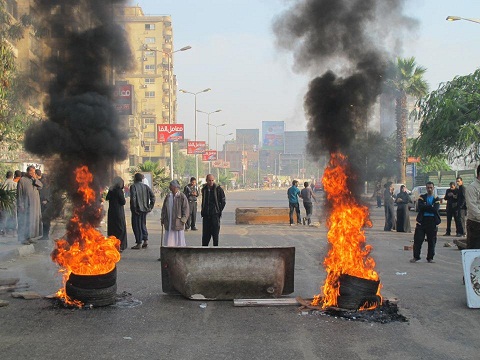
A military court scheduled to rule on the Qorsaya island case on Monday postponed the verdict to 28 January.
The court had scheduled a session on14 January in the trial of 26 Qorsaya island residents. The residents are charged with committing acts of violence against the military.
“The judge said he postponed the verdict because he needed more time to read the case files but it was probably because he wanted to avoid public anger. People will be busy on 28 January whereas they were gathered today outside of the courthouse in support,” said No to Military Trials for Civilians member Mahmoud Salamani.
Residents clashed with military forces on 18 November last year, which left one Qorsaya resident dead and several injured after the military fired rubber bullets.
The military claims the island belongs to it and that is using it for defence purposes but an administrative court has twice ruled that the land belongs to the residents.
“Of course the verdict for them [the military] has to be in favour of the armed forces, which would have angered the people outside. On the 28th people will be busy protesting and so maybe there won’t be as much support,” added Salamani.
The Qorsaya residents were planning on staging a sit-in on Bahr Al-Aazam Street but were convinced by the police to wait until the verdict.
Another military court in Ismailia postponed the Sheikh Nada case to 21 January, setting the date for a verdict session.
Youssef Nada is facing military trial on charges of assaulting armed forces personnel. He said the dispute was a result of the military harassing his father, Nada Fathy Nada, for the past five years, and tearing down his house frequently.
Nada built his house on land he owns that is near to but not part of a military base. He has a court order affirming that the property is his.
Two other civilians, Sherif El-Hosary and Sinai based photojournalist Mohamed Sabry, are also facing military trials on Tuesday at the Cairo and Ismailia military courts respectively.
Over 12,000 civilians have faced military trials since the 25 January 2011 uprising.
The practice declined following the inauguration of President Mohamed Morsy, Egypt’s first civilian president, and the dismissal of top members in the Supreme Council of the Armed Forces that ruled during the transitional period.
However, at least 38 civilians have faced military trials in five different cases since November 2012.
Article 198 of the new constitution allows for military trials for civilians in special circumstances “as regulated by the law.”

